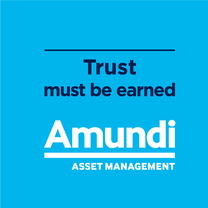Newsroom
Research Paper - Global Investment Views - August 2018
United Kingdom, July 30, 2018

The dominance of politics: investment implications
Concerns about trade continue to take centre stage.While US assets have so far been resilient amid escalating protectionist rhetoric,markets targeted by tariffs are under pressure.We still don’t believe a full trade war is likely and we still expect decent economic growth, though decelerating and less synchronised, and with only mild inflationary pressure. But, trade disputes could impact business confidence and investment plans, interfering with central banks (CB)’ interest rate normalisation processes.
Trade talks are just the tip of the iceberg in a more complex geopolitical world. In our view, we have entered a new era of the dominance of politics vs economics. New forces, more inward-looking, with nationalist nuances are now underpinning new political agendas all over the world. Bilateral relationships are likely on the rise vsmultilateralism; threats to globalisation could comemore into play. This neworder could influencemarkets in many ways. First, due to permanently higher levels of geopolitical risk. These risks are not easy to price and can create short-term volatility, but also have long-term implications. This means that predictability of a central scenario that underpins investment decisions decreases significantly, and with it, the opportunities for strong directional risk exposures. Second, due to trade tensions, global growth will not necessarily lead to global trade growth. This new order, with forces at play pointing to further fragmentation, resulting in divergences in economic and market performances, implies a reorientation of strategies towards more domestic/autonomous stories. International diversification that did not work properly in the last 30 years, due to correlation ofmarkets to global trade factor, should do better going forward. Global and diversified approaches become paramount to taking advantage of opportunities in this new framework. Third, on a medium-term perspective, the more proactive/expansionary fiscal policies promoted by the populistic wave will put pressure on public debt and fiscal sustainability. This is of particular concern considering that total global debt skyrocketed to USD 250tn in 1Q18. Fourth, we may see mounting political pressures on CB, especially in the US. The threat to CB autonomy and credibility is a risk not currently priced into the market. Deficit and debt monetisation could become the ultimate temptation.
In conclusion, the scenario for investors is becoming increasingly complex. In the short term, it looks to be too soon to call an impending bear market. It is important to exploit opportunities in areas that can still benefit the most from the extension of the cycle (US equity) and rotate towards new themes (sector divergences are relevant, and in Europe, we have already seen a rotation towards defensive sectors). For longterm investors, looking for entry points in asset classes that have already discounted most of a gloomy scenario (EM assets) is a key strategy to add value, with a focus on bottom-up selection. Due to higher risks on the horizon, enhancing the resilience of portfolios – ie, improving credit quality, increasing liquidity buffers and further reducing risk concentration -- is becoming paramount in order to protect investor assets.
Experts
Vincent has been Group Chief Investment Officer since February 2022. Previous to that, he was the Group Deputy CIO of Amundi since 2015. He is a member of the Globa[...]
Read moreMonica Defend, Head of Amundi Investment Institute. Monica is Head of the Amundi Investment Institute, which was created in February 2022, and a member of Amundi's Exe[...]
Read moreAbout Amundi
About Amundi
Amundi, the leading European asset manager, ranking among the top 10 global players[1], offers its 100 million clients - retail, institutional and corporate - a complete range of savings and investment solutions in active and passive management, in traditional or real assets. This offering is enhanced with IT tools and services to cover the entire savings value chain. A subsidiary of the Crédit Agricole group and listed on the stock exchange, Amundi currently manages more than €2.3 trillion of assets[2].
With its six international investment hubs[3], financial and extra-financial research capabilities and long-standing commitment to responsible investment, Amundi is a key player in the asset management landscape.
Amundi clients benefit from the expertise and advice of 5,600 employees in 35 countries.
Amundi, a trusted partner, working every day in the interest of its clients and society
Footnotes
- ^ [1] Source: IPE "Top 500 Asset Managers" published in June 2024 based on assets under management as of 31/12/2023
- ^ [2] Amundi data as at 31/03/2025
- ^ [3] Paris, London, Dublin, Milan, Tokyo and San Antonio (via our strategic partnership with Victory Capital)
Footnotes





